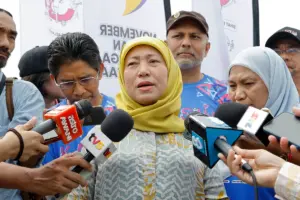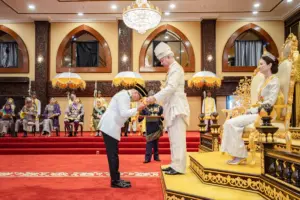KUALA LUMPUR: The nationwide Form Six Student Representative Council election serves as an important training platform for students to understand democratic processes and leadership development.
Selangor Education Department deputy director Hanisah Mohd Ali stated that the election implementation aligns with the Ministry of Education’s aspirations to empower Form Six education through the Form Six Education Roadmap 2024-2030.
“The primary consideration for establishing the Form Six Student Representative Council ensures student voices are heard and considered within our education system’s decision-making process,“ she told reporters at Kolej Tingkatan Enam Bandar Utama in Petaling Jaya.
She explained that this platform also realises the national education philosophy by developing students’ leadership, communication, and social responsibility skills.
Hanisah noted that the council’s establishment will broaden students’ social networks while enhancing their soft skills and competitiveness as pre-university students.
The election process begins at school level, with the best candidates progressing to district education offices for assessment before state-level screening selects national representatives.
Each school nominates one outstanding representative from three contested positions: chairman, deputy chairman, and secretary during the initial school-level elections.
All Form Six centres submit their best candidates to district education offices, which evaluate and shortlist candidates for state education departments to choose the two best representatives.
The two selected candidates then undergo national-level assessment before the National Form Six Student Representative Council formation completes by October’s end.
This approach provides early training for students to understand election processes, aligning with Malaysia’s voting eligibility age of 18 years.
The process helps mould students into responsible citizens as they learn election procedures, candidate evaluation, and voting decisions through school-level mini-elections.
The Election Academy provided professional support, advice, and guidance to ensure proper and efficient voting processes and election procedures across all participating schools. – Bernama






